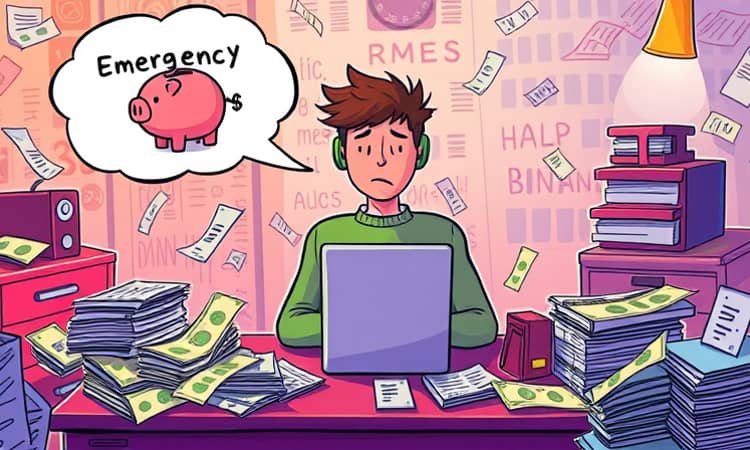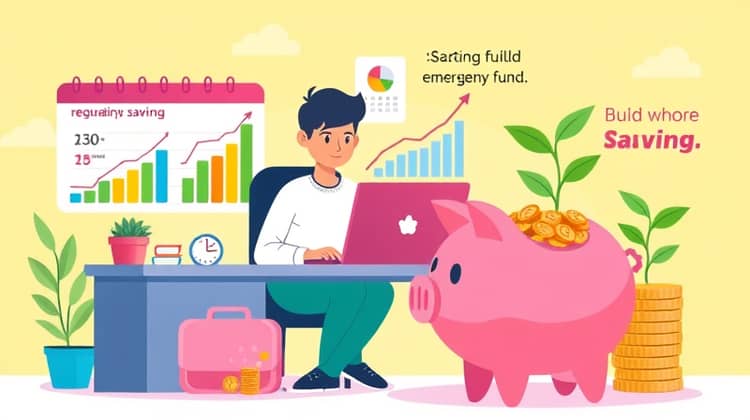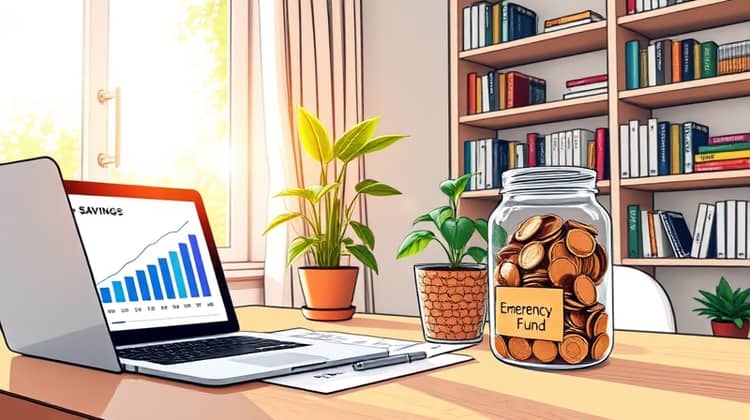Emergency Funds: Know the Right Time to Dip In

In today's unpredictable world, having financial safety measures in place is more important than ever. One of the most critical financial tools is an emergency fund. This fund serves as a financial safety net, allowing individuals to manage unforeseen expenses without derailing their financial stability.
Understanding when to utilize this fund can be the difference between a manageable situation and a financial disaster. This article will guide you through the concept of emergency funds, why they are essential, and how to build and maintain one effectively.
Additionally, we'll explore the risks associated with not having an emergency fund and provide actionable steps to ensure you're prepared for life’s unexpected events.
What is an Emergency Fund?

An emergency fund is a specific amount of money set aside to cover unexpected expenses. These can arise from various situations, such as a sudden job loss, unexpected medical bills, or urgent home repairs. This fund is designed to provide financial relief when life throws a curveball, allowing individuals to navigate tough times without falling into debt.
The primary goal of an emergency fund is to provide peace of mind. Knowing that you have resources available to handle surprises can significantly reduce stress and anxiety. It enables individuals to make choices that are financially sound rather than responding reactively to financial crises.
Typically, an emergency fund should be liquid, easily accessible cash that doesn’t tie up your resources in long-term investments or accounts with penalties for withdrawal. You should aim to have enough saved to cover at least three to six months' worth of living expenses. This provides a buffer against common financial emergencies.
- It acts as a financial cushion during tough times.
- Helps avoid falling into debt for unexpected expenses.
- Offers peace of mind and financial stability.
In essence, an emergency fund is a critical component of a healthy financial portfolio, providing a safeguard for the unpredictable aspects of life.
Why You Need an Emergency Fund

Emergency funds play a crucial role in financial planning. They ensure that you can handle sudden expenses without jeopardizing your financial wellbeing or resorting to high-interest loans or credit cards. These funds help you stay afloat in the face of adversity, keeping you out of the cycle of debt that often results from financial emergencies.
Moreover, having a solid emergency fund promotes better mental health. When people feel financially secure, they experience reduced stress and anxiety about their finances. This financial security allows individuals to focus on their personal and professional lives without constantly worrying about potential financial crises.
When to Use Your Emergency Fund

Knowing when to tap into your emergency fund is essential for its proper management. The fund should only be used for true emergencies, not for planned expenses or non-urgent purchases. Common situations that warrant the use of an emergency fund include significant medical expenses, loss of a job, car repairs, or emergency travel needs.
To avoid depleting your fund on unnecessary expenses, it's vital to differentiate between an emergency and a discretionary expense. An emergency should be sudden, unforeseen, and essential, requiring immediate financial assistance.
- A sudden medical expense due to an accident or illness.
- Job loss that results in a prolonged period without income.
- Urgent home repairs, such as a broken heating system in winter.
- Major car repair needed for essential transportation.
Using your emergency fund wisely can help you recover from difficult situations without incurring debt, allowing you to bounce back and continue your financial journey.
How Much Should You Have?

The amount you should have in your emergency fund can vary based on individual circumstances. Generally, financial experts recommend saving three to six months' worth of living expenses. This amount allows you to cover essential costs, such as rent, groceries, and utilities, during a financial setback.
- Consider your monthly expenses to determine your target amount.
- Income stability and your job security may influence how much you need to save.
- Personal financial responsibilities, such as loans and dependents, should also be factored in.
Determining the right amount for your emergency fund is a personal decision that should align with your unique financial situation and comfort level.
Building Your Emergency Fund

Starting an emergency fund can seem daunting, but breaking it down into manageable steps makes it achievable. Begin by setting a specific savings goal based on your selected target amount to ensure you are effectively working towards your fund. Small, consistent contributions can add up significantly over time, providing a safety net.
You can automate your savings by setting up a direct deposit from your paycheck or transferring a specific amount into your fund each month. Consistent saving habits create progress over time without requiring continual effort or thought.
- Set a realistic savings goal based on your personal financial situation.
- Open a separate, easily accessible savings account for your emergency fund.
- Contribute to your fund regularly, aiming for a specific percentage of your income.
Building your emergency fund takes time, patience, and discipline, but the financial security it provides is invaluable.
Maintaining Your Fund

Once you've established your emergency fund, it's essential to maintain it. This means regularly reviewing the amount you have saved and adjusting your contributions as your financial situation changes. Additionally, consider inflation and changes in living expenses that might necessitate increasing your target fund balance over time.
Another critical aspect of maintaining your fund is ensuring that it remains designated strictly for emergencies. Avoid the temptation to dip into it for non-emergency expenses, as this can quickly deplete your savings and undermine your financial cushion.
- Regularly review your fund's balance to ensure it's adequate for your needs.
- Increase savings contributions if your expenses rise or your income changes.
- Keep your fund separate from your primary checking or savings accounts to avoid accidental spending.
Diligently maintaining your emergency fund helps safeguard your financial stability in unpredictable situations, keeping your peace of mind intact.
The Risks of Not Having an Emergency Fund

Running without an emergency fund exposes you to numerous financial risks. Without a safety net, you may find yourself depending on credit cards or loans when unexpected expenses arise, leading to increased debt and financial strain. This often creates a cycle of borrowing that can be difficult to break.
Additionally, lacking an emergency fund can lead to significant stress and anxiety during emergencies, as you may feel trapped with no financial options. This financial instability can impact various aspects of life, including job performance, relationships, and overall well-being.
- Reliance on high-interest credit as a quick solution.
- Increased financial stress and potential mental health issues.
- Risk of not being able to meet essential needs during emergencies.
Creating and maintaining an emergency fund is not just a financial necessity—it is a powerful tool to promote a more stable, secure life.
Conclusion

Establishing an emergency fund is one of the most prudent financial decisions you can make. It provides a vital safety net against unpredictable life events, allowing you to navigate financial difficulties with confidence and less anxiety. By minimizing debt reliance during emergencies, it promotes better financial outcomes and overall wellbeing.
The ability to withstand unexpected expenses without financial turmoil is an essential skill in today’s economy. Committing to building and maintaining your emergency fund not only secures your finances but also enables you to focus on long-term financial goals like saving for retirement, buying a home, or investing in education.
Ultimately, the right time to dip into your emergency fund is when a true financial emergency arises. Be discerning, consistent, and committed to maintaining your fund for a sound financial future.






